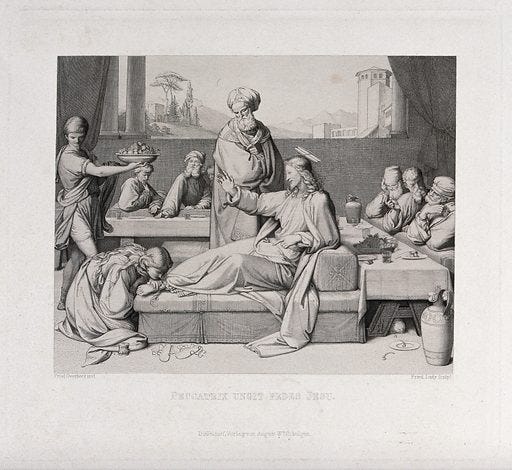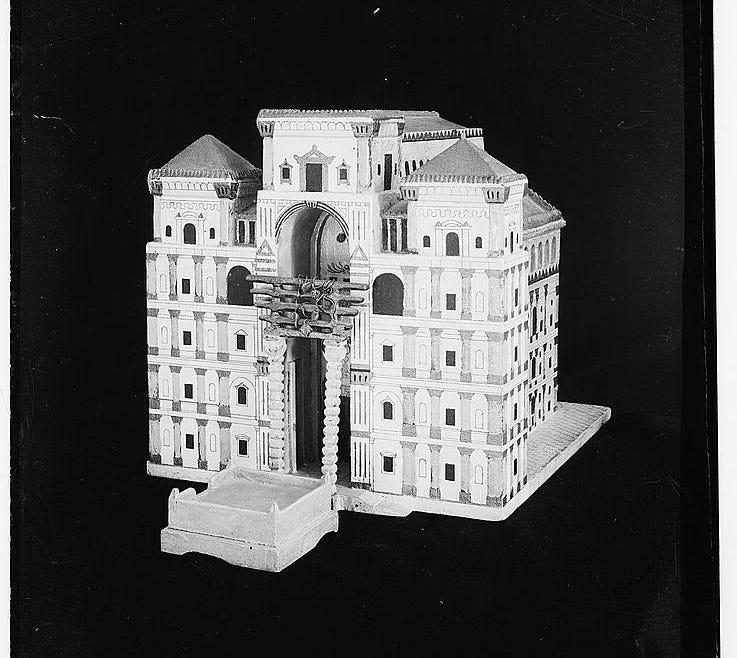7 Words: Father, Into Your Hands I Commit My Spirit
Description
Transcript and outline prepared by AI—please comment if you notice any errors.
Outline and Summary
I. Introduction: When Good Deeds Bring Suffering
* Common experience: suffering for doing good ("no good deed goes unpunished").
* Key question: How should we respond to undeserved suffering?
* 1 Peter 4:19 — “Entrust your soul to a faithful Creator while doing good.”
* Ultimate example: Jesus on the cross—greatest moment of undeserved suffering.
II. Jesus’ Last Word from the Cross (Luke 23:44 –49)
* Darkness over the land: a sign of judgment.
* Tearing of the temple curtain: signifying direct access to God through Jesus’ finished work.
* Jesus’ final cry: “Father, into your hands I commit my spirit.”
* A declaration of trust.
* Contrast with earlier cry of abandonment (“My God, my God, why have you forsaken me?” from Psalm 22).
* Jesus voluntarily gives up his life (John 10:17 –18).
* Jesus entrusts himself not to people but to God.
* Reference: John 2 — Jesus didn’t entrust himself to men, for he knew what was in them.
III. Jesus’ Death and Burial (Luke 23:50 –56)
* Joseph of Arimathea: a member of the council who dissented from the decision to crucify Jesus.
* Requests Jesus' body, gives him an honorable burial.
* Women disciples prepare spices to anoint the body.
* Sabbath intervenes—pause in activity and expectation.
IV. The Empty Tomb and Angelic Message (Luke 24:1–12)
* Women come to the tomb expecting to anoint a dead body.
* The stone is rolled away, the body is gone.
* Angelic rebuke: “Why do you seek the living among the dead?”
* Reminder: Jesus had foretold his death and resurrection multiple times.
* Women believe and report to the apostles.
* Apostles are slow to believe—skeptical of the women's report.
* Peter goes to investigate, leaves marveling.
V. The Road to Emmaus (Luke 24:13 –35)
* Two disciples walking in sadness and confusion.
* Jesus joins them but is unrecognized.
* They express disappointment: “We had hoped he would redeem Israel.”
* Jesus rebukes them: “O foolish ones, slow of heart to believe…”
* He gives them a Bible study:
* Shows from Moses and all the prophets that it was necessary for the Messiah to suffer before entering glory.
* Traces themes: Genesis 3:15 , Exodus, David’s path to kingship, Isaiah’s suffering servant.
* Pattern: suffering → glory.
* At dinner, Jesus breaks bread—their eyes are opened.
* Immediate response: return to Jerusalem to tell others.
VI. Resurrection and Exaltation of Jesus
* Romans 1:4 — Jesus declared Son of God by his resurrection.
* Philippians 2 — exalted and given the name above every name.
* Daniel 7 — Son of Man receives dominion and glory from the Ancient of Days.
* Hebrews 2 — Jesus fulfills Psalm 8, regaining dominion as the true man.
* The second Adam who succeeds where the first failed.
* Crowned with glory as both God and man.
VII. Application: Trusting God Through Suffering
* Jesus entrusted himself to the Father—and was vindicated.
* Pattern for us:
* 1 Peter 5 — Humble yourself under God’s mighty hand, and in due time, he will exalt you.
* Christ’s path is our path: humble suffering, then eternal glory.
* Challenge: Do we live like Jesus is still in the tomb (Holy Saturday), or do we live in the power of resurrection Sunday?
VIII. Closing Call and Prayer
* Do you know the burning joy of walking with Jesus?
* Trust in Christ’s death and resurrection—receive forgiveness and new life.
* Live in step with the Spirit (Galatians 5).
* Invitation to repent, believe, and follow the risen Christ.
📌 SERMON SUMMARY
This sermon walks through the final word of Jesus from the cross—“Father, into your hands I commit my spirit”—and continues through the burial, resurrection, and post-resurrection appearance on the road to Emmaus (Luke 23–24). It frames Jesus’ death not as a tragedy but as the ultimate act of trusting God amidst suffering.
Jesus models perfect faith: in the face of betrayal, abandonment, and unjust suffering, he entrusts his spirit to the Father. His death is not the end but the turning point, vindicated by his resurrection and exaltation as both Son of God and Son of Man.
Through this lens, the sermon challenges us: Are we slow of heart to believe? Do we respect Jesus but live like he’s still in the tomb? The call is to believe his words, embrace the pattern of suffering before glory, and trust that God will exalt the humble—just as he exalted Jesus.
The message ends with a passionate appeal to respond in faith: trust Christ’s finished work, walk in resurrection life, and know the burning joy of a heart awakened to the living Christ.
Transcript
This morning we're going to be in the Gospel of Luke. The Gospel of Luke will start in chapter 23.
Have you ever done something good and suffered for it? There's an old saying, "no good deed goes unpunished," and I've thought that many times as I've tried to do something good and it blows up in my face. How do you respond? In those times of mistreatment, you've done something kind for someone and they respond angrily in return, or you feel like you're being mistreated. You have undeserved suffering as a result of doing something good.
In the book of 1 Peter 4:19 , Peter tells his readers that we ought to entrust our souls to a faithful Creator while doing good. That even in the midst of suffering, even in the midst of trial, our hope, our trust should be in God.
Well, there was no greater moment in the history of the world, no greater moment of undeserved suffering than what our Savior, Jesus Christ, faced on the cross. So as we conclude our series on the seven words—the seven sayings of Jesus from the cross—we come to this last one here. It's found in Luke chapter 23. I'm going to read verses 44 to 49:
It was now about the sixth hour, and there was darkness over the whole land until the ninth hour, when the sun's light faded, and the curtain of the temple was torn in two. Then Jesus, calling out with a loud voice, said, “Father, into your hands I commit my spirit.” And having said this, he breathed his last.
Now when the centurion saw what had taken place, he praised God, saying, “Certainly this man was innocent.” And all the crowds that had assembled for the spectacle, when they saw what had taken place, returned home beating their breasts. And all his acquaintances and the women who had followed him from Galilee stood at a distance watching these things.
Over the past several weeks, we've discussed the importance of the things that are mentioned there in verses 44 and 45. The three hours of darkness were representative of God's judgment, as the wrath of God the Father was poured out on the Son, who became sin for us. The sufficiency of Christ's sacrifice is symbolized in the tearing of the temple curtain—the curtain that hung between the holy place where the priest would go in and minister, and the Holy of Holies, where only once a year the high priest was allowed to go and offer up blood for his sins and for the unintentional sins of the people. That veil symbolized a separation between God and his people, and it was torn in two at the death of Christ.
At the completion of his work there on the cross, Jesus cried out to the Father. It's interesting here in verse 46, the shift in language. A few weeks ago, we talked about both in Mark 15 and in Matthew 27, we hear Jesus quote Psalm 22, where he says, “Eli, Eli, lama sabachthani?”—“My God, my God, why have you forsaken me?” He's speaking there as he's finishing his suffering for sin on the cross. He cries out to the Father asking, “Why have you abandoned me? Why are you punishing me?” And we know the reason is because he had taken on our sin. And Jesus himself knew that. In quoting Psalm 22—which begins with that cry of desperation but finishes with a declaration of trust in the Father—he’s pointing to a bigger truth.
Here, a similar thing happens. Jesus' language shifts from referring to God as “God” to now referring to him again as “Father.” He says, “Father, into your hands I commit my spirit.” We see again the control of Jesus, as we've discussed multiple times in recent weeks. In John 10:17 –18, Jesus had said, “No one takes my life from me. I lay it down of my own accord.” He laid down his life voluntarily, willingly, happily for the sheep—for his people.
He commits his soul to the Father. It's the language of trust. Jesus, having gone through all the suffering that he went through in bearing our sin and God's wrath against that sin, comes to the end of that time there on the cross and he says, “Father, I am trusting you with the results of this action.” Jesus entrusted himself to God and God alone.
That would seem to be a pretty wise thing to do, considering how unfaithful people are. In John 2, Jesus, after he had cleared the temple initially in his ministry—he had come into the temple and found people selling and buying and said, “You’ve turned this place into a den of robbers.” He fashions a cord of whips and drives them all out. Afterwards, people are amazed and say, “I'm going to follow you.” But it says, Jesus, for his part, did not entrust himself to men, for he knew the hearts of men and needed no one to tell him what was in man.
Jesus did not entrust himself to men. That would have led to a lot of heartache. Judas had betrayed him. Peter, who had sworn his allegiance,
























